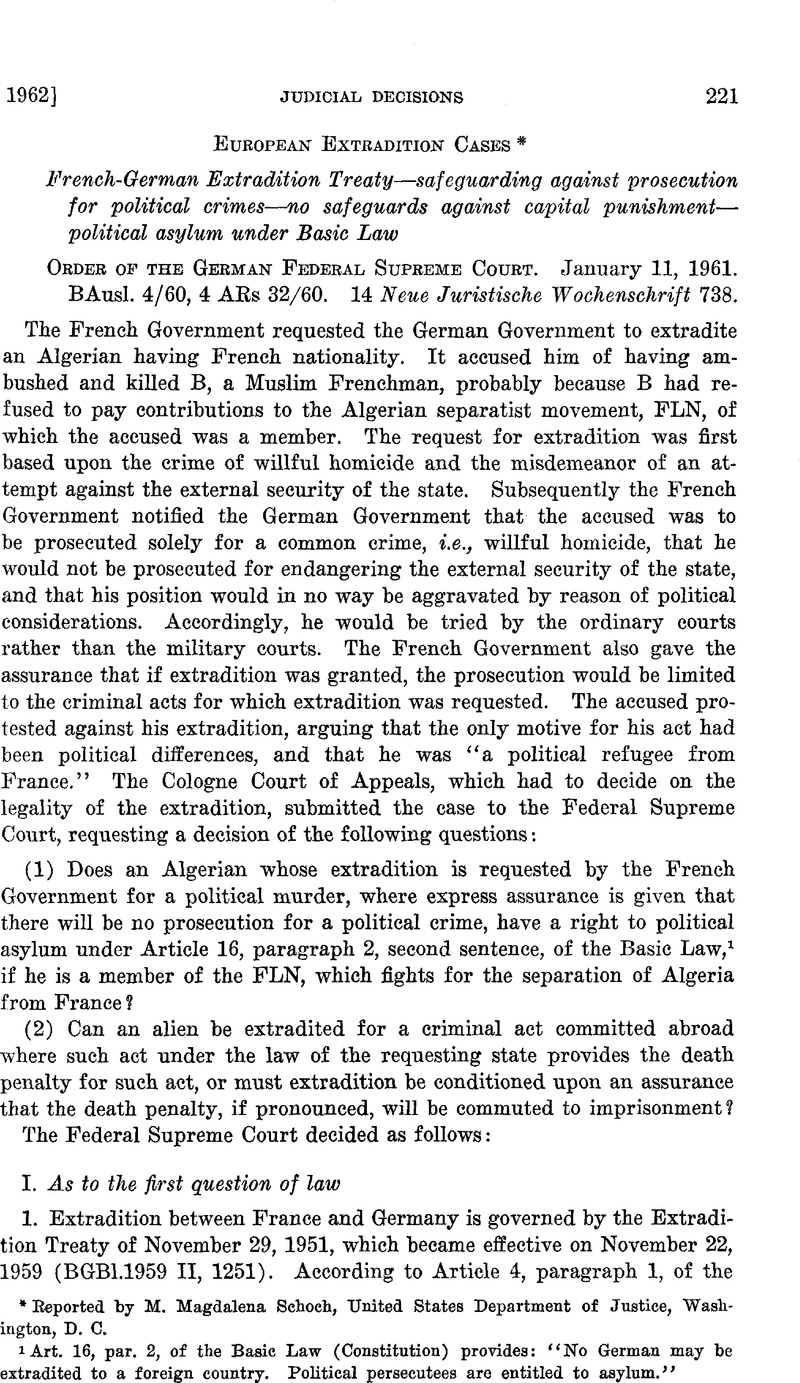No CrossRef data available.
Article contents
European Extradition Cases
Published online by Cambridge University Press: 28 March 2017
Abstract

- Type
- Judicial Decisions
- Information
- Copyright
- Copyright © American Society of International Law 1962
References
1 Art. 16, par. 2, of the Basic Law (Constitution) provides: “No German may be extradited to a foreign country. Political persecutees are entitled to asylum.”
2 Reported in 54 A.J.I.L. 416 (1960).
3 Sec. 3 of the Extradition Law of Dec. 23, 1929, reads as follows:
“Section 3 (1) Extradition is not permissible if the act for which extradition is requested is a political act or is connected with a political act in such manner that it was designed to prepare, secure, cover up or repel such political act.
“(2) Political acts are punishable attacks which are immediately directed against the existence or security of the state, against the head of the state or a member of the government of the state as such, against a constitutional body, against civic rights in elections or plebiscites, or against friendly relations with foreign countries.
“(3) Extradition is permissible if the act constitutes a deliberate crime against life, except where it was done in open battle.”




